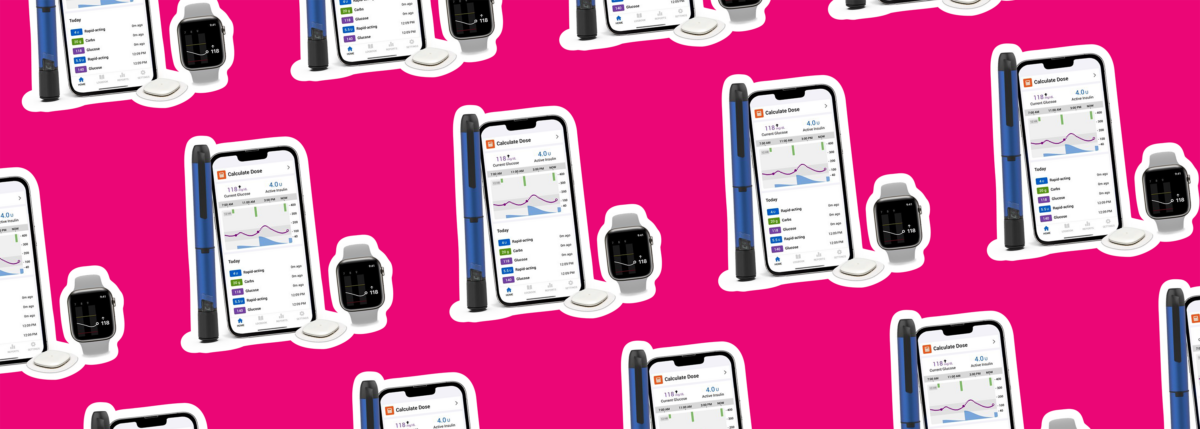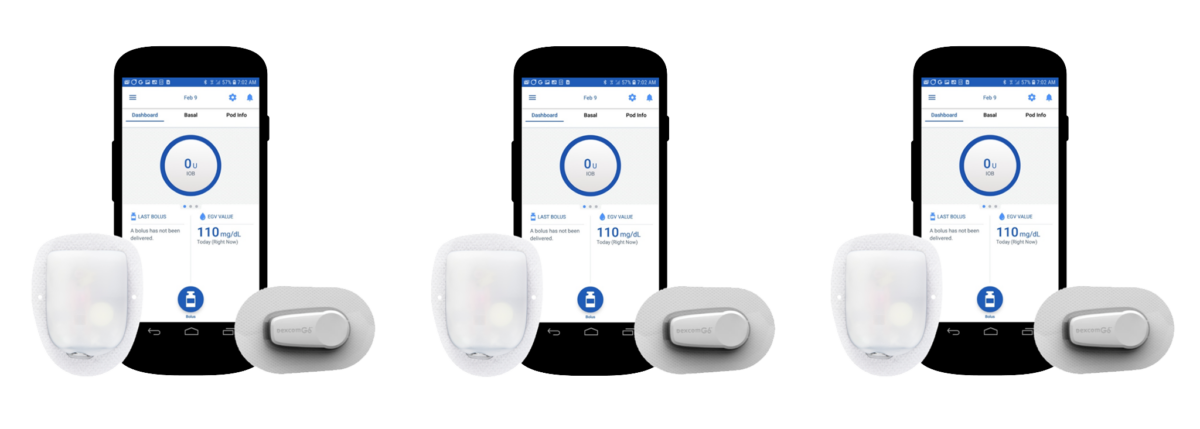Stem Cell Therapy for Type 1 Diabetes: Patient Achieved Insulin Independence on Day 270
Written by: Ginger Vieira
6 minute read
May 3, 2022
Editor’s Note: The news shared below is from a recent and promising clinical trial. For more information on type 1 diabetes research visit our research portal made possible by the JDRF – Beyond Type 1 Alliance; to learn more about getting involved with clinical trials, click here.
Read past coverage on Vertex Pharmaceuticals’ stem cell therapy:
- Stem Cell Therapy for Type 1 Diabetes Reduced Patient’s Insulin Needs by 91%
- Interview with Gary Meininger, M.D. Head of Clinical Development
The first patient dosed with VX-880—a stem cell-derived potential therapy to treat type 1 diabetes—has achieved groundbreaking insulin independence at day 270 with an HbA1c of 5.2 percent, according to a recent press release.
This means the patient no longer requires exogenous (external) insulin doses and is producing enough endogenous (internal) insulin to maintain normal blood sugar levels at day 270 of the trial.
In 2021, Vertex Pharmaceuticals Inc. made headlines with earlier results of the same trial: the same patient had experienced a 91 percent reduction in their daily need for exogenous insulin at day 90.
Still currently in Phase 1/2 of its clinical trial, there is still one caveat to its success: the patient requires immunosuppression therapy to sustain their insulin production. Vertex, however, is confident it will find better ways to manage the immune system around its proprietary product.
Additionally, the Food and Drug Administration (FDA) has suddenly placed the U.S.-based clinical trial on hold. Fortunately, the reasoning for pausing the study appears to be a minor bump in the road: the FDA feels there is “insufficient information” to support increasing the trial participants’ dosages of VX-880. Meanwhile, the Canadian-based trial on VX-880 is still active.
Here, we’ll take a closer look at the latest results, the FDA’s instructions to pause the study and the future of immunosuppression for the long-term success of VX-880.
What is VX-880?
VX-880 is a manufactured proprietary stem cell therapy product that aims to restore endogenous insulin production and stabilize blood sugar levels. The ability to manufacture transplantable insulin-producing cells eliminates the obstacle of relying on organ donors, making VX-880’s success a noteworthy moment in history.
VX-880 works by essentially replacing the damaged insulin-producing cells in a person with type 1 diabetes with healthy transplanted beta-cells. Because these are “allogeneic” cells—which means they come from outside the patient’s body—the patient must also undergo immunosuppression therapy to protect these transplanted cells from their body’s immune system. Again, this is not the long-term plan of managing the immune system aspect of this therapy.
VX-880 is delivered by an infusion into the patient’s hepatic portal vein, which is located near the pancreas. By providing the body with these allogeneic islet beta-cells and immunosuppression, the transplanted cells are able to successfully produce insulin and manage safe and normal blood sugar levels.
The press release states that any side effects of VX-880 have been mild to moderate. While participants have each reported different symptoms during the study (including headache and a rash), they were deemed unrelated to VX-880.
The most noteworthy side effect related to VX-880 isn’t surprising: hypoglycemia (low blood sugar).
As each participant’s natural insulin production increases very gradually, hypoglycemia is the key indicator that their exogenous insulin doses can be reduced.
So far, three patients have been dosed with VX-880
Broken into three parts (A, B, and C) the clinical trial intends to enroll a total of 17 patients with type 1 diabetes. Part A included two patients receiving ½ the intended full dose of VX-880. In Part B, five patients will receive the full dose of VX-880—so far, only one patient has begun Part B. In Part C, the remaining 10 patients will receive the full dose of VX-880.
So far, three patients have received infusions of VX-880.
| Participant | VX-880 Dosage | Days of Data | Exogenous Insulin Needs | HbA1c | C-peptide levels* |
| Patient 1 | ½ (Part A) | 270 | 0 | 5.2% | 560 pmol/L at day 90 |
| Patient 2 | ½ (Part A) | 150 | 30% reduction | 7.1% | 202 pmol/L at day 90 |
| Patient 3 | Full (Part B) | 29 | n/a | n/a | n/a |
| Non-diabetic | 4 to 5.6% | 260 to 1270 pmol/L |
*C-peptide levels are an indication that your body is producing insulin. In people with type 1 diabetes, C-peptide levels can measure anywhere from “undetectable” to very low levels.
The length of time between when a patient receives VX-880 and when they begin producing insulin is one of the most exciting and difficult to predict aspects of this trial.
“These are the only three patients in history to ever receive VX-880,” explained David Altshuler, executive VP, global research and chief scientific officer at Vertex Pharmaceuticals. “We’re still learning how long it will take for the transplanted cells to adjust and begin producing insulin. It takes time.”
With the study suddenly on hold in the U.S., the participants who’ve yet to receive their first dose of VX-880 will wait until the FDA allows it to resume.
Why has the FDA placed the clinical trial on hold?
While the sudden hold on the study may be frustrating, Vertex Pharmaceuticals told Beyond Type 1 that it has not yet received any detailed comments or questions from the FDA.
“We’re really excited about these recent results, and we see it as an important milestone for the program and the field of diabetes research,” explained Felicia Pagliuca, vice president, type 1 diabetes disease area executive at Vertex Pharmaceuticals.
“The FDA has told us they’ve determined there is insufficient information to support increasing the dosage of VX-880 as the study protocol calls for.”
Vertex added that VX-880 evaluations have determined that the overall safety profile of the therapy is positive and it is well-tolerated.
“Part A of the study was to evaluate VX-880 at half the targeted dosage before moving to the full dosage,” said Altshuler.
An independent safety and monitoring committee reviewed the data from Part A which meant Vertex was clear to move forward with Part B, administering the full dosage to patient 3. Part B was underway when Vertex heard from the FDA.
“An independent safety and monitoring committee has reviewed the data from Part A of the trial, and concluded that VX-880 is safe,” explained Altshuler. This independent safety review meant Vertex was clear to move forward with Part B, administering the full dosage to patient 3. Part B was underway when Vertex heard from the FDA.
“We look forward to working collaboratively with the FDA so we can continue to move forward as soon as possible,” added Altshuler.
Immunosuppression and the Encapsulation of VX-880
While the results of VX-880 are already groundbreaking, the need for immunosuppression is certainly not ideal for treating type 1 diabetes on a larger scale—but Vertex knows this, and emphasized that this is just one step in the journey.
For instance, Vertex is on the verge of launching another clinical trial in which the same stem cell-derived islet cells are encapsulated, protecting them from the patient’s immune system entirely.
Vertex plans to submit an investigational new drug (IND) application to the FDA in 2022 for the “Cells Plus Device” program. This would allow clinical trials to begin using their encapsulation technology with VX-880.
Like their work in developing treatments for cystic fibrosis, Altshuler told Beyond Type 1 that Vertex is “all in” when it comes to developing life-changing treatments for type 1 diabetes.
“People with type 1 diabetes should expect that what we’re doing right now with VX-880 is not the end result, it’s just the very beginning. Our goal is to work as long as it takes to develop the best treatment possible.”
Altshuler emphasized that the most important element of the program is the ability to manufacture cells that can successfully produce insulin.
“This has never been done before,” said Altshuler. “There are many ways to manage the immune system but without the success of cells producing insulin, there’s no other progress to measure.”
Additionally, most of the immunosuppression methods Vertex will explore have been used for many years and are well understood.
“The immunosuppressants being used in this trial are well tolerated and well understood when it comes to managing side-effects and adjusting dosages,” explained Altshuler. “Yes, they are safe for daily life. There are many people taking these immunosuppressants for other health conditions while living their everyday normal life.”
As research and development in immunosuppression progress over the next decade that will inevitably open new doors for VX-880.
“Vertex will explore every option,” explained Altshuler. “As we look a decade into the future, there may be critical advancements in gene editing, for example, that make the transplanted cells less recognizable to the immune system.”
The bottom line…
With the first big hurdle tackled—transplanting manufactured cells that successfully produce insulin—only time will tell which method of managing the immune system will prove most effective and widely applicable for using VX-880 to treat the broader type 1 population.
“The data is encouraging, and we’re all working together,” said Altshuler. “The FDA is part of that community. We will keep answering questions until we ultimately get where we need to be: helping as many people with type 1 as possible live a better life.”
This content mentions Vertex Pharmaceuticals Incorporated, an active partner of Beyond Type 1 at the time of publication.
News coverage by the Beyond Type 1 team is operated independently from any content partnerships. Beyond Type 1 maintains full editorial control of all content published on our platforms.
Related Resources

On November 20, 2024, Medtronic received FDA clearance for its latest InPen app. This advancement...
Read more

Eli Lilly and Company is helping patients and caregivers understand important changes to Medicare Part...
Read more

Already compatible with Dexcom’s G6 and G7 continuous glucose monitors (CGMs), the Omnipod 5 Automated...
Read more


